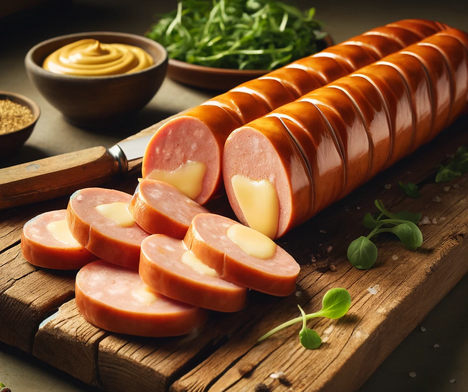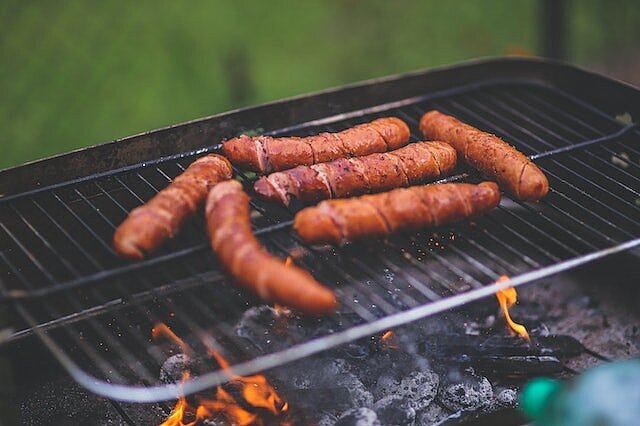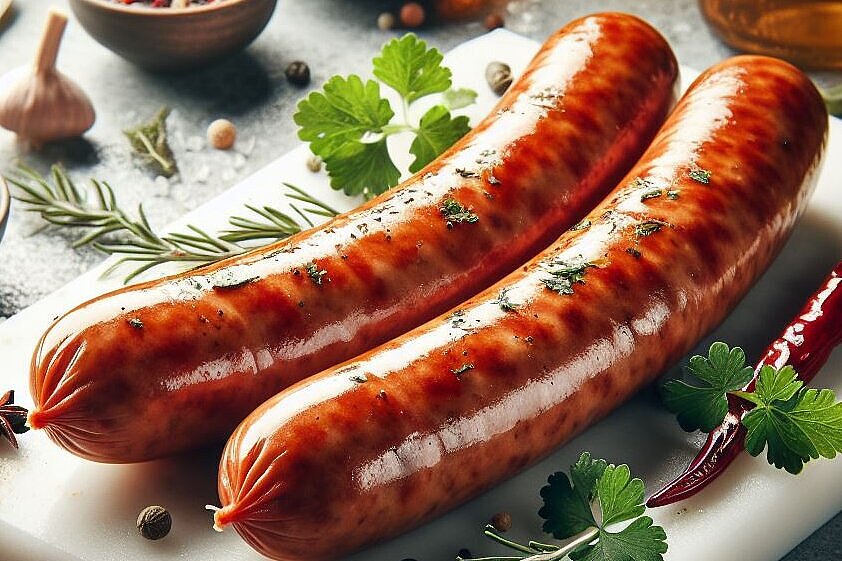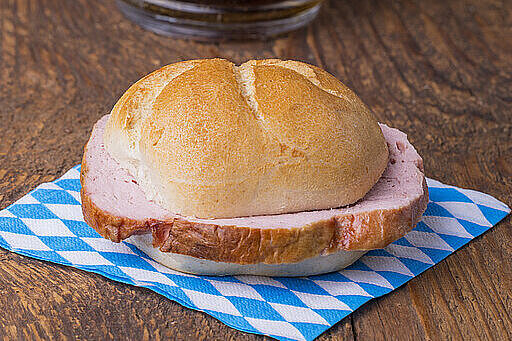Käsekrainer

Käsekrainer, a popular specialty in the culinary world, often finds its way onto our plates. But what about our four-legged friends? Can the integration of Käsekrainer into dogs' diets be considered an occasional treat or even part of their meals? This article dives deep into the world of Käsekrainer, looks at what exactly makes it tick and examines the potential benefits and drawbacks for dogs.
What is Käsekrainer?
Käsekrainer is a type of sausage that originated in Austria. It is typically made from a mixture of pork and beef interspersed with cubes of cheese, which gives it a distinctive and tasty character. When grilled or roasted, the cheese inside melts, giving the sausage a juicy and aromatic flavor.
The hidden dangers of sausage
While the idea of treating your dog to a bite of your Käsekrainer may be tempting, there are some important considerations to keep in mind:
High fat and salt content
Käsekrainer is high in fat and salt, two ingredients that should only be present in a dog's diet in moderation. Excess can lead to weight problems, cardiovascular disease and, in the worst cases, pancreatitis.
Spices and onions
The spices that give Käsekrainer its characteristic taste can be problematic for dogs. Onions and garlic, for example, are toxic to dogs and can lead to anemia, even in small amounts.
Cheese
Although many dogs love cheese, it's important to remember that some dogs are lactose intolerant. This can lead to gastrointestinal discomfort, including bloating, diarrhea and vomiting.
The supposed benefits
Enjoyed in moderation, it could be argued that cheese krainer can be a source of protein and fat for dogs. Protein is an essential building block for a dog's health, and fat provides energy. However, balance is key, and the potential risks far outweigh the minor benefits.
Prevention and healthy alternatives
Instead of feeding your dog cheese krainer, consider healthier alternatives designed specifically for dogs' nutritional needs. If you want to give your dog an occasional special treat, choose ones that are low in fat and free from harmful spices.
A no-go for the bowl
In summary, as tempting as they may be, cheese krainer is not suitable for your dog's diet. The risks associated with the high fat and salt content, as well as the potentially harmful spices, make them an unwise choice for any dog owner with their four-legged friend's well-being in mind. By promoting healthy eating habits and choosing safe, dog-friendly treats, you are contributing to your dog's long-term well-being and health.
If you notice any signs of hypersensitivity or poisoning in your dog, you should see your vet immediately. We are not a substitute for a vet, but we try to be as accurate as possible. Every dog reacts differently and we recommend you get a second opinion or consult your vet if in doubt.
Stay healthy and take good care of your four-legged friend!😊
Similar to Käsekrainer
Bratwurst contains a lot of protein, which is important for your dog's muscle development and health. It also provides iron, zinc and B vitamins, which are involved in various metabolic processes....
Bockwurst sausages mainly contain pork and bacon, which have a high fat and protein content. Pork is a good source of animal protein, which is important for muscle building and cell regeneration. It...
Wiener sausages are a type of cooked and smoked sausage traditionally made from a mixture of beef and pork. They are characterized by their fine texture, mild taste and characteristic pink color,...
Liver cheese contains a lot of protein, which is important for your dog's muscle development and regeneration. It also provides iron, zinc, selenium and B vitamins, which are essential for your...



